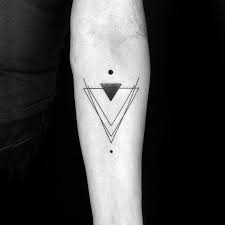
Tattooing by Unlicensed Artists
Specific tasks should be left to professionals, and tattooing involving needles penetrating the skin is one of them. Licensed tattoo artists have undergone apprenticeship and sanitation courses, ensuring their expertise and the use of sterile equipment. This helps prevent the spread of blood-borne diseases like Hepatitis C and HIV.
Cultural and Legal Issues
Tattoos carry negative connotations in certain cultures, leading to restrictions in public facilities such as bathhouses in Japan. Some countries also prohibit offensive or culturally inappropriate tattoos, seeing them as harmful and disrespectful. In certain states, Tattoos may be seen as sexual advertising and can be banned.
Discrimination in the Workplace
Tattoos can be a source of discrimination in the workplace. Some employers view Tattoos as liability risks, fearing infections like Hepatitis or HIV. As a result, job applicants with visible tattoos may be rejected.
Tattooing and Criminal Behavior
Although no direct evidence links tattooing to criminal behavior, studies suggest a connection. The physical appearance of Tattoos can influence a person’s socialization and personality development. Additionally, tattoos provide a means of identification for law enforcement when traditional methods are compromised.
Regulation and Legal Issues for Tattoo Shops
Operating a tattoo or body piercing shop comes with its own set of challenges and regulations. Many states have specific laws, and violations can result in criminal penalties. This includes tattooing minors without proper licensing, tattooing without registration, and other violations of safety rules.
Tattoo Laws Around the World
Tattoo laws vary greatly worldwide, from strict regulations to prioritizing public health concerns. Some countries, like Iran, have made religious Tattoos illegal, while others, such as South Korea, only allow licensed doctors to perform tattooing.
Tattooing and Individual Responsibility
People who get tattoos need to be aware of potential legal issues. Tattoos with gang symbols or racist imagery may be illegal in certain countries. In prisons, tattooing is strictly prohibited due to its illegality and potential health risks from makeshift tattoo tools.
Tattooing and Islamic Law
Islamic law prohibits tattooing in certain Muslim countries, and displaying tattooed religious quotes or images in public spaces is also against the law.
Safety Measures and Tattooing
Although tattooing was illegal in New York until 1997, it was lifted to ensure consumer safety and prevent disease transmission. There have been no reported cases of Hepatitis B transmitted via tattoo since the ban was lifted.

